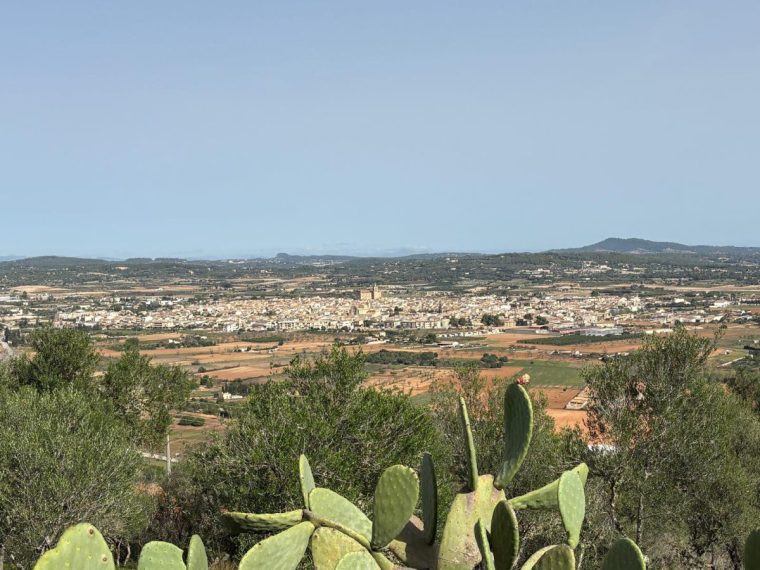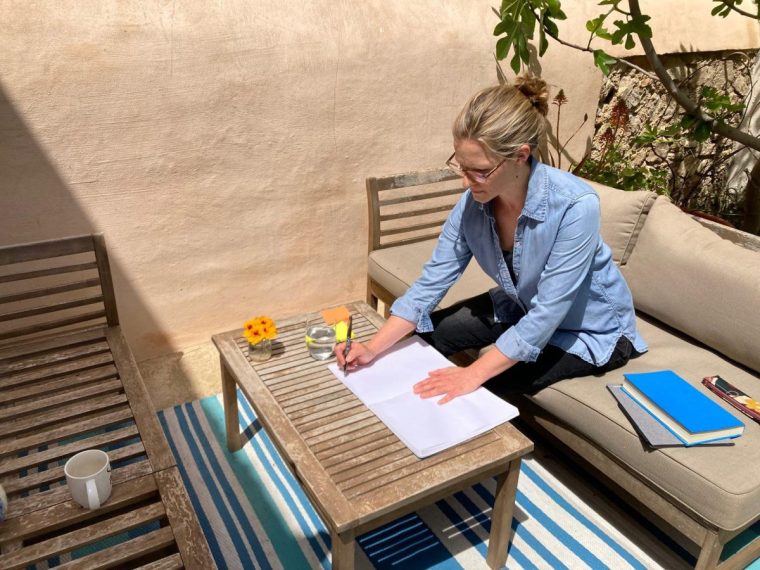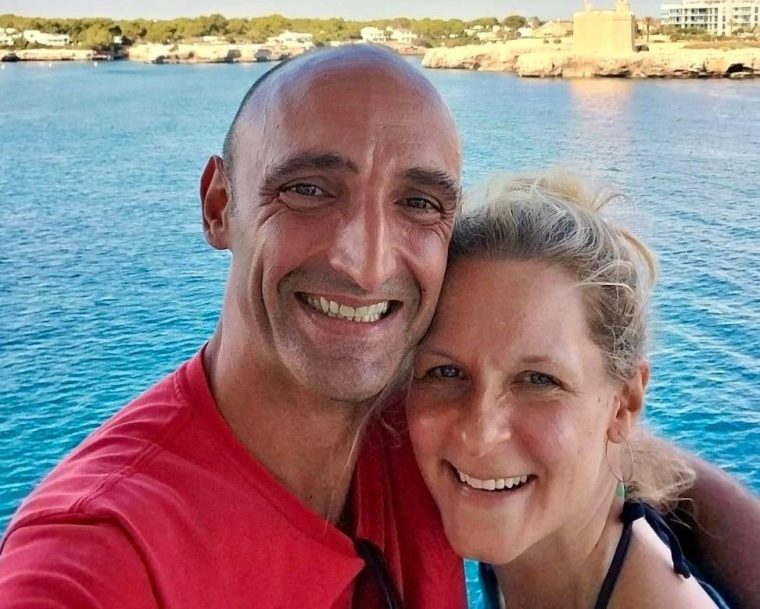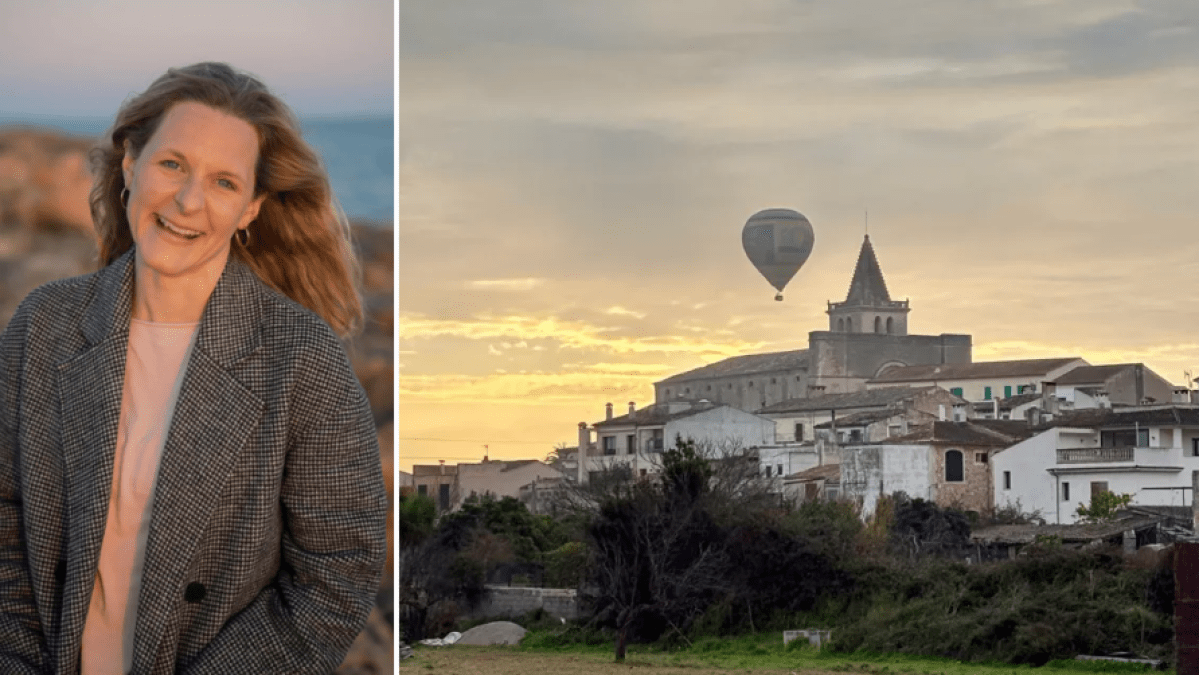Jessica Silva says it is easier to have a social life as a parent in family-friendly Mallorca
A British woman who left her high-paying corporate job in London to move to Spain has said she no longer has to earn anywhere near as much money to enjoy a far better quality of life.
Jessica Silva, 49, had been itching to live abroad for years, but could not decide where she wanted to make her new home.
“And then we came to Mallorca on holiday in 2016 and I knew I had found the place,” she told The i Paper.
Back in London, Ms Silva had been working in a corporate six-figure job she loved, but which was “challenging”, especially since her son was born.
“I was taking him with me on the train to work, dropping him at nursery, working, picking him up, sometimes taking him back to my office, fighting my way home on the train, and then it was dinner bath and bed,” she said. “I just didn’t get any time with him. This was not how I wanted life to be.”
 The view over Mallorca, where Silva now lives with her 12-year-old son
The view over Mallorca, where Silva now lives with her 12-year-old son
Her “exit plan” to live abroad involved training to be a life coach, which she did on evenings and weekends.
When redundancies at her company were announced in 2017, Ms Silva took it as a chance to move with her husband and son to Mallorca. Within a month of leaving her job, she had left the UK. “I rented out my house in London and found a house in Mallorca to rent for a year, while we decided what we’d do long term,” she said.
Soon after the move, she and her husband divorced, but she was able to live off her savings and income from consultancy work while she set up her coaching business to pay the bills.
“We live in a small town of about 4,500 people,” she said. “It has everything we need – a primary and secondary school, a theatre, shops and places to eat.”
 Ms Silva is now able to work from home during the day, meaning she saves on commuting costs
Ms Silva is now able to work from home during the day, meaning she saves on commuting costs
The early days of living as an English-speaking single mother in the Catalan-speaking town of Porreres, in the centre of the island, often felt uncomfortable.
“I had to get used to putting myself out there and introducing myself to people,” she said. “I tried not to be too embarrassed about the state of my Spanish.”
But the first woman she met happened to speak English, and quickly included Ms Silva to her friendship group: “She was incredibly welcoming. It was serendipitous. The friends became a strong lifeline.”
As soon as they moved, she enrolled her son, aged four at the time, in the local primary school. “It was tough for him,” she said. “We only spoke English, and he was dropped into a school that spoke Catalan. I think it’s a myth that children will just pick up the language in a short number of weeks. It’s not always true.”
Although occasionally she thinks the school system in Mallorca is not on par with the education her son would have received in London, she appreciates that it is “more relaxed” in Mallorca, and that her son will leave school speaking English, Catalan and Spanish fluently.
The family-friendly culture of the island has made it much easier to be a single parent with a social life, she said.
“Children come along to everything,” she said. “You don’t leave the kids home with a babysitter. If you go out for dinner, which is usually at 9pm, the kids come too – it doesn’t matter how old they are.”
While she was hesitant at first to give him the freedom the other children had, Ms Silva quickly learned that it was normal to let them be out of your sight at times.
“Kids might be running around the town square playing hide-and-seek or football, while we ate dinner at a restaurant,” she said. “Watching other parents was a lesson for me to calm down.”
Now aged 12, her son will often go out on his own and Ms Silva does not think twice about it.
The slow pace of life she had hoped for while living in London is exactly what she found in Mallorca. “Everything is slower and calmer,” she said. “All the shops close on Sunday. People go out for walks as a normal social activity.”
 Ms Silva met her partner, who is from Mallorca, three years ago
Ms Silva met her partner, who is from Mallorca, three years ago
After dropping her son at school at 8am, she works coaching clients online for her business, finishing at 2pm, just in time to welcome her son home from school.
“Sometimes we’ll go to the beach [25 minutes’ drive away] after a day’s work for a swim,” she said.
Although she now makes significantly less money than in London, she no longer feels the need for the high salary: “I don’t need to earn as much. Things are cheaper but we also aren’t surrounded by stuff all the time. I don’t need a work wardrobe, and I don’t have to pay for transport to work because I work from home.”
A year after she moved to Mallorca, she bought a three-bedroom house in the town for €85,000 (£71,250), far cheaper than a similar house in the UK.
A weekly shop with good quality produce costs around €70 (£59), a good meal out for one is about €20 (£17), electricity is about €200 (£168) a month, and running a car is much cheaper than in the UK, although buying a car is more expensive.
Hobbies are affordable too. For a Pilates class once a week, Silva pays €50 (£42) a month, and for her son to play basketball up to three times a week, she pays about the same.
“We don’t need beach holidays, because the beach is so close,” she said. “Our holidays are to the UK, where we stay with family.”
One thing she does not love, however, is how difficult it is to navigate how to navigate the “system” as a foreigner: “There are so many hoops you have to jump through and sometimes it is difficult to even know the hoops exist.”
Although she obtained residency easily in 2017, updating the residence cards has been time-consuming and confusing. “It took three months to book an appointment to get my son a new residency card, and six months to get it,” she said.
Ms Silva is now resolute she will stay in Mallorca after meeting her partner, a local, three years ago.
“I miss family and close friends in the UK, but I know that even if I lived in London, I probably wouldn’t see them frequently,” she concluded. “I can’t see why I’d ever move back.”
